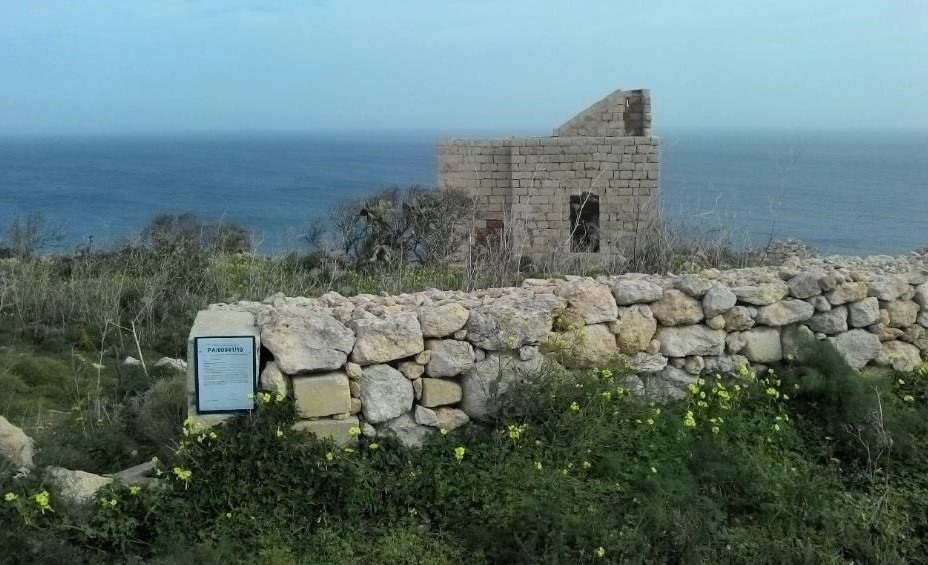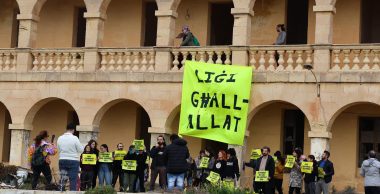After studying the proposed reform for the Rural Policy, the undersigned NGOs are of the opinion that this presents a considerable improvement over the present Rural Policy.
In general, the reforms represent stricter regulation of development occurring Outside Development Zone, resulting in an increase in environmental protection standards.
The NGOs note with satisfaction that the reform now includes proper safeguards for protected areas by including a general presumption against development with adverse effects on these sites.
It is also positive that the reform has added a number of additional safeguards to a number of policies which were liable to abuse and which caused the take up of fresh land in ODZ areas.
In particular dwellings for livestock farmers are now restricted to the curtilage of an existing farm, while the construction of new buildings for agro-tourism accommodation will no longer be allowed. Restrictions on the construction of wineries and similar buildings have been tightened to hinder applications by pretend farmers.
One highly controversial point also finally addressed by the reform is the ban on the redevelopment of countryside ruins into ODZ villas.
The NGOs also look positively on restrictions intended to safeguard the landscape from the excessive proliferation of agricultural ‘tool rooms’, whose construction will now only be possible for plots of land exceeding 10 tumoli.
The requirements to tie the sale of agricultural buildings to the sale of the agricultural land is also an important advance to discourage construction in ODZ areas for speculative purposes.
The NGOs also note with satisfaction that the new policies also provide additional protection to countryside buildings of a vernacular nature in addition to those which enjoy scheduled status.
The elimination of the use of concrete in relation to the provision of access to farms will also have a positive impact on the landscape.
One point which the NGOs feel has not been adequately addressed by the policy is that extensions to existing ODZ dwellings will still be allowed. The NGOs feel that this will compound the mistakes already committed in the past.
The NGOs also feel that the policy allowing redevelopment of existing countryside buildings not deserving of protection is too lax and may lead to eyesores on the landscape.
It remains to be seen whether the ‘new general design principles’ (which are of themselves, a positive development) will provide an adequate safeguard against this danger.
Another point which was not addressed by the reform is the construction of swimming pools in ODZ areas. The NGOs maintain that this is not a legitimate use within the countryside and are disappointed that the chance was missed to deal with this problem.
The NGOs would like to conclude by showing their appreciation for the fact that this time round the Government showed itself willing to take on board a number of their proposals for the reform of the Rural Policy, contrary to what had happened when the previous policy was instituted. The NGOs are committed to continue contributing ideas for a further improved policy during the current public consultation.
- Flimkien Għal Ambjent Aħjar
- Friends of the Earth (Malta)
- Moviment Graffitti
- Ramblers’ Association of Malta
______________________________________________________________________
Regolamenti Aktar Stretti fir-’Rural Policy’ Huma Żvilupp Pożittiv
Wara li studjaw ir-riforma proposta għar-Rural Policy, l-NGOs hawn taħt iffirmati huma tal-fehma li din tippreżenta titjib konsiderevoli fuq ir-Rural Policy preżenti.
B’mod ġenerali, ir-riformi jirrapreżentaw regolazzjoni iktar stretta ta’ żvilupp li jseħħ barra ż-żona tal-iżvilupp (ODZ), li tirriżulta f’żieda fl-istandards ta’ protezzjoni ambjentali.
L-NGOs jinnotaw b’sodisfazzjon li r-riforma issa tinkludi salvagwardji xierqa għaż-żoni protetti billi tinkludi preżunzjoni ġenerali kontra l-iżvilupp b’effetti ħżiena fuq dawn is-siti.
Huwa wkoll pożittiv li r-riforma żiedet numru ta’ salvagwardji ġodda fejn jidħlu ċerti policies li kienu suxxettibbli għall-abbuż, u li b’kawża t’hekk, kienu qegħdin iwasslu sabiex tittieħed art verġni f’ODZ.
B’mod partikolari djar ġodda għar-raħħala sejrin ikunu limitati għaż-żona tar-razzett eżistenti, filwaqt li binjiet ġodda intiżi għall-akkomodazzjoni agro-turistika m’ghadhomx ser ikunu permessi. Ir-restrizzjonijiet fuq binjiet ġodda fejn jingħasar l-inbid u binjiet oħra simili żdiedu sabiex jiġi evitat il-lok għall-abbuż minn nies li jilgħabuha ta’ bdiewa.
Punt kontroversjali ħafna li fl-aħħar ġie indirizzat ukoll mir-riforma huwa l-projbizzjoni fuq l-iżvilupp mill-ġdid ta’ fdalijiet ta’ bini fil-kampanja f’vilel fuq ODZ.
L-NGOs iħarsu wkoll b’mod pożittiv fuq restrizzjonijiet maħsuba biex jissalvagwardjaw il-pajsaġġ mill-proliferazzjoni eċċessiva ta’ kmamar tal-għodda agrikoli, li l-kostruzzjoni tagħhom issa se tkun possibbli biss għal biċċiet ta’ art li jaqbżu l-10 tomniet.
Ir-rekwiżit li jorbtu l-bejgħ ta’ bini agrikolu mal-bejgħ tal-art agrikola huma wkoll avvanz importanti biex jiskoraġġixxu l-konstruzzjoni f’żoni ODZ għal skopijiet spekulattivi.
L-NGOs jinnotaw ukoll b’sodisfazzjon li l-policies il-ġodda jipprovdu wkoll protezzjoni addizzjonali għall-bini ta’ natura vernakolari fil-kampanja, anke jekk dan ma jkunx skedat.
L-eliminazzjoni tal-użu tal-konkrit b’rabta mal-provista tal-aċċess għall-irziezet se jkollha impatt pożittiv ukoll fuq il-pajsaġġ.
Punt li l-NGOs iħossu li ma ġiex indirizzat b’mod adegwat mill-policy huwa li se jibqgħu permessi estenzjonijiet ta’ djar eżistenti f’ODZ. L-NGOs iħossu li dan se jkompli jġedded l-iżbalji li saru fil-passat.
L-NGOs iħossu wkoll li l-policy li tippermetti twaqqigħ u bini mill-ġdid ta’ binjiet eżsitenti fil-kampanja hija laxka wisq u taf twassal sabiex ikompli jitħassar il-pajsaġġ. Wieħed għad irid jara jekk il-‘prinċipji ta’ disinn ġenerali’ ġodda (li huma minnhom infushom huma żvilupp pożittiv) jipprovdux salvagwardja xierqa kontra dan il-periklu.
Punt ieħor li ma ġiex indirizzat mir-riforma huwa l-bini ta’ pixxini fiż-żoni ODZ. L-NGOs isostnu li dan mhuwiex użu leġittimu fil-kampanja u huma iddiżappuntati li ċ-ċans biex tiġi riżolta din il-problema ma tteħidx.
L-NGOs jixtiequ jikkonkludu billi juru l-apprezzament tagħhom għall-fatt li din id-darba l-Gvern wera lilu nnifsu lest li jisma’ l-proposti tal-NGOs fuq ir-riforma tar-rural policy, għall-kuntrarju ta’ dak li kien ġara meta ġiet implimentata il-policy preċedenti. L-NGOs sejrin ikomplu jagħtu l-kontribut tagħhom għat-titjib ta’ din il-policy permess tal-konsultazzjoni pubblika li qegħda għaddejja bħalissa.
- Flimkien Għal Ambjent Aħjar
- Friends of the Earth (Malta)
- Moviment Graffitti
- Ramblers’ Association of Malta




